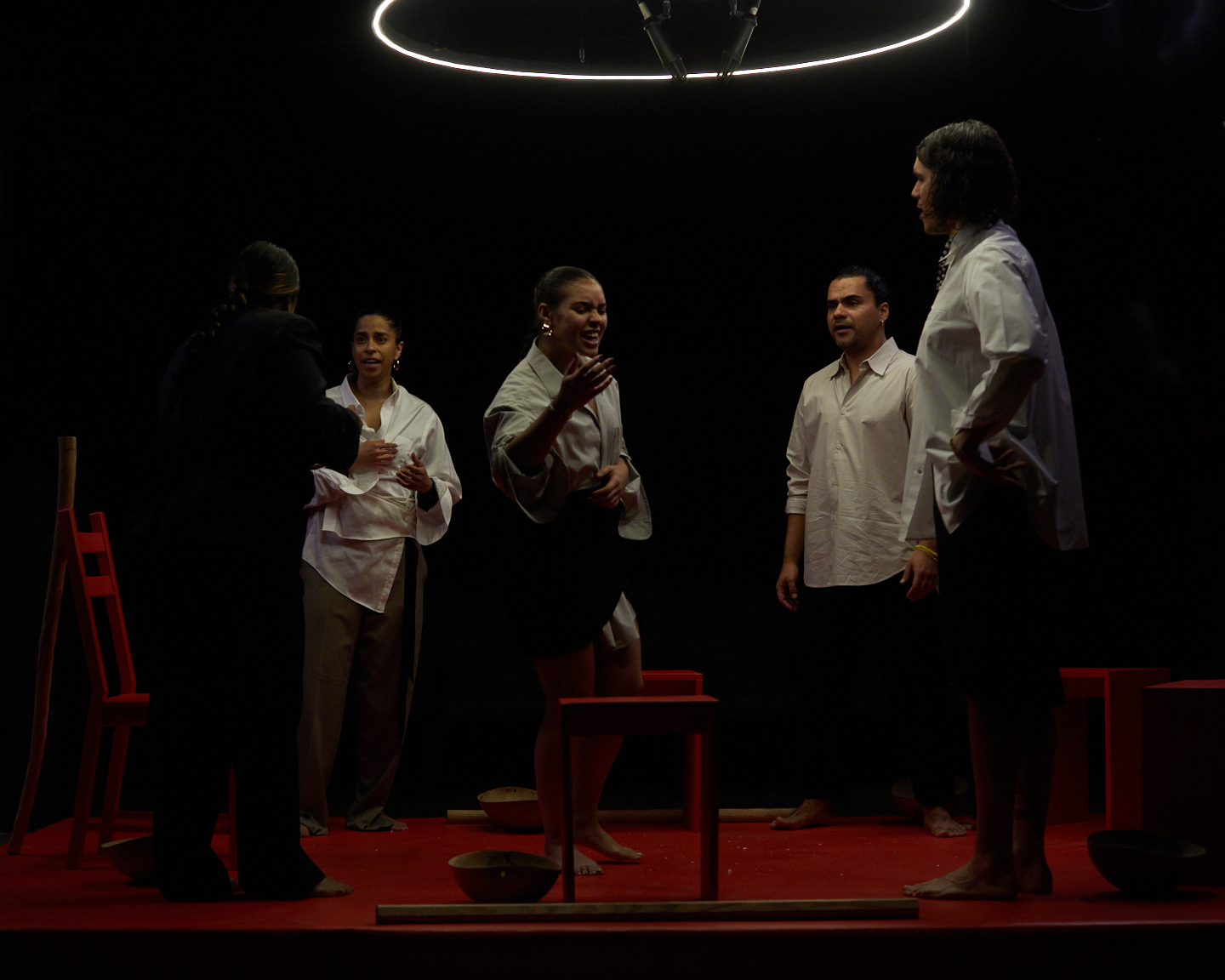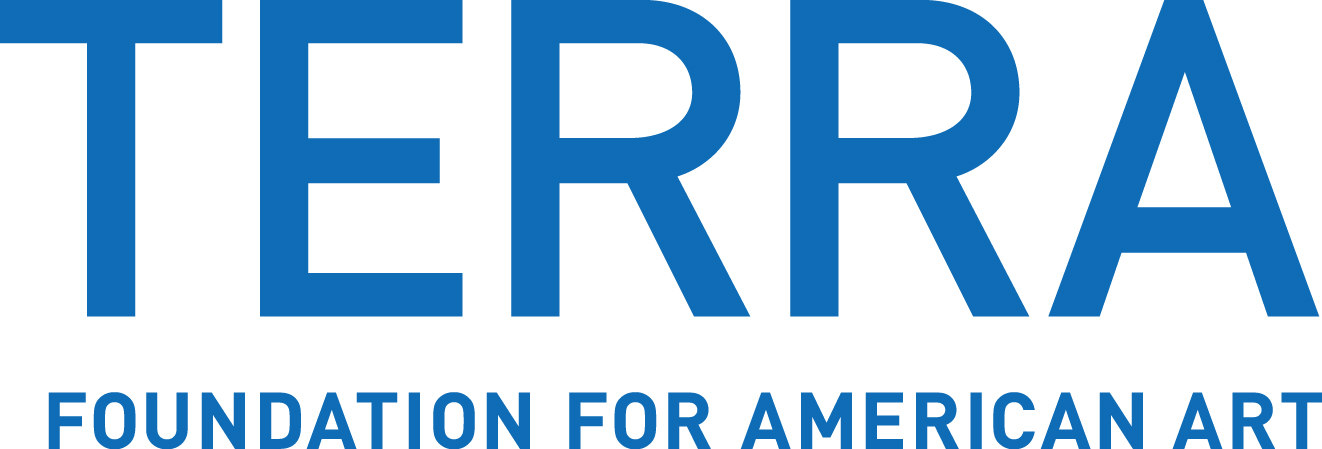The Voice Does Go Up: Chant Down

Radio 12.05.2024 16:00
With Luis Rincón Alba and Camila Falquez
SAVVYZΛΛR Online streaming and on Berlin 88.4 FM & Potsdam 90.7 FM
Our project STANDING IN THE CRACKS OF MULTIPLE HISTORIES moves also through the SAVVYZΛΛR radiowaves. With a growing constellation of stories and struggles pushing against the ongoing legacy of destruction and extraction by the United States, we continue the endless dance, of pangs and of pleasure, towards emancipation and ease as a daily practice. We welcome Luis Rincón Alba, Camila Falquez, and a plurality of joined voices: in flesh, spirit, instrument, and Caribbean memory living diasporically in the United States, coming together in Brooklyn, New York.
This English and Spanish feature entitled "The Voice Does Go Up: Chant Down” is the outcome of an installation by the same name last year, in which live performances experimented with Caribbean songs, techniques, and rebellious energies. Awakened by collective chanting, the performances sought to access the vibrational registers, sometimes secret and hidden, in which the history of Black and Indigenous struggles found refuge against, and in resistance to, the violent colonial and imperial forces in the Caribbean, and amidst ongoing structural inequality in the United States, alike. The past is invoked in the present as listeners are invited into a performative listening session that manifests the existence of highly complex musical and sonic structures, in which anticolonial legacies have been codified and passed down.
In this session, bits and fragments from a multitude of materials – conversations, rehearsals, soundscapes from the installation, and a recording of the live performance in 2023 – trace the sonic tumultuousness of the Caribbean and foreground its potential to challenge the history of imperial reach. The attention to the voice is less concerned with the meaning it delivers and more fascinated with the modes in which the voice overwhelms meaning and presents us with the supernatural, and divine, traits of the performative and sonic. It makes audible cracked worlds: cracks as interconnected territories instead of dividing gaps – as much as how these voices sovereignly address hegemonic narratives. These voices, from the Caribbean diaspora in New York, sing from the guts of a troubled empire, and weave an investigation of the voice and its potential to come together beyond the historic brutalization of extraction and imposition, and the limitations of the national. In the voices of these chants, we inherit encrypted modes of coming together that threaten the unjust state of things.
The performers and singers part of the session are: Carolina Oliveros, Luis Rincón Alba, Mobéy Lola Irizarry, Gina Soto, Natalia Pérez. The co-direction is by Camila Falquez and Luis Rincón Alba. The bells and chekerés are by Giancarlo Luiggi and Orlando Carr. The Sound Mixing and Recording by Michael Hammond and the Co-Production is by Hannah Traore Gallery. With the Musical Direction by Carolina Oliveros.
Luis Rincón Alba is a scholar and artist whose research focuses on the political and social potential of festive practices in the Caribbean and Latin America. He delves into the history of rebellion and insurrection during the colonial period and investigates how this history informs and shapes contemporary artistic practices. As an artist, Rincón Alba draws from historical materials and practices that he has encountered in his native Colombia and in his travels around the Caribbean and the Americas. He works across various mediums, including live performance, film, video, sound, and writing, to convey the unspoken lineages of rebellion that continue through festive practice. He is currently assistant professor at NYU’s Tisch School of the Arts in the Department of Art & Public Policy. His book project, Dance to the Hurt! Carnival Performance, Riots, and Festive Mutuality is a groundbreaking study that links the history of carnivals in the Caribbean with the riots that were critical to the end of slavery and colonial regimes. Luis Rincón Alba has received numerous fellowships and awards in recognition of his contributions to the humanities. He has been a fellow at NYU’s Center for the Humanities and the Urban Democracy Lab and has also received public humanities fellowships at Columbia University’s Center for the Study of Social Difference and Humanities New York. In 2010, he was awarded a prestigious Fulbright fellowship.
Camila Falquez is a New York-based photographer and visual artist of Colombian heritage. She was born in Mexico City and grew up in Spain. Falquez’s photographs harness the traditions of fashion and portrait photography and honor the contemporary spectrum of social and gender diversity. Channeling the conventions of surrealism and a strong color palette, Falquez elevates and empowers her subjects. Her images have been published in The New York Times, TIME Magazine, El País, WSJ, and Vogue, among others. She has collaborated with brands such as Clinique, Hermes and Nike. In 2022, Falquez had her first solo exhibition in New York at Hannah Traore Gallery called Gods That Walk Among Us.
FUNDING This project is made possible through support from the Terra Foundation for American Art.



